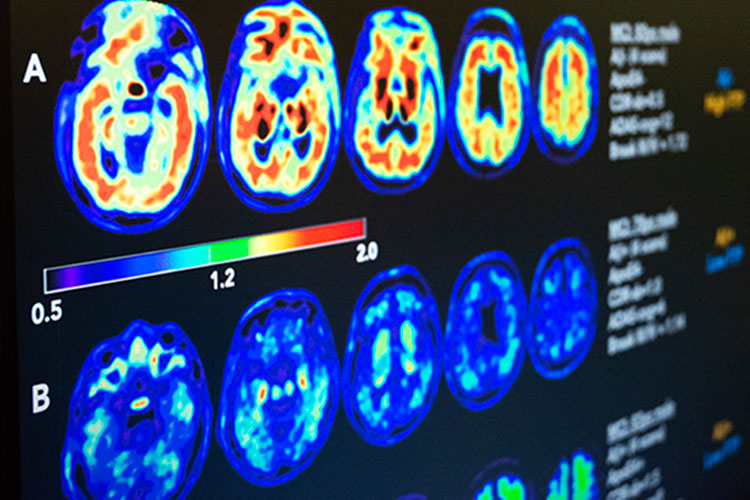The future of Alzheimer’s disease treatment might be centered more on degeneration correlated with tau protein than beta-amyloid plaques, a new study, appearing in in Science Translational Medicine, accentuates.
In the study, the comparison in examinations of tau protein and beta-amyloid was made using positron emission tomography (PET) imaging. 32 participants in the early stages of Alzheimer’s were tested to establish which hallmark of the neurodegenerative disease could predict brain atrophy during the PET scans and 15 months later.
According to the findings, researchers conducted “longitudinal analysis of tau-PET and β-amyloid–PET in 32 patients with AD starting at early disease stage and correlated the signal with brain atrophy at later stages.”
Based on examinations from PET imaging, researchers found that tau protein, and not beta-amyloid, could predict brain atrophy better at later stages of Alzheimer’s.
From the findings: “In this cohort, tau-PET, but not β-amyloid–PET, signal could predict brain atrophy at later stages. Tau-PET might be useful for predicting disease progression and for designing and evaluating new therapies.”
“Quantitative analyses showed that the global intensity of tau-PET, but not β-amyloid–PET, signal predicted the rate of subsequent atrophy, independent of baseline cortical thickness. Additional investigations demonstrated that the specific distribution of tau-PET signal was a strong indicator of the topography of future atrophy at the single patient level and that the relationship between baseline tau-PET and subsequent atrophy was particularly strong in younger patients.”
“These data support disease models in which tau pathology is a major driver of local neurodegeneration and highlight the relevance of tau-PET as a precision medicine tool to help predict individual patient’s progression and design future clinical trials,” researchers concluded.


